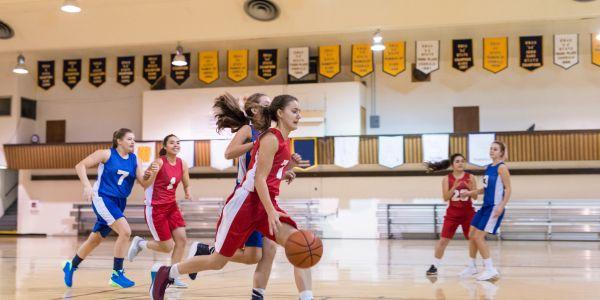
Can you take your foot off the gas pedal during a competition?
Ask yourself the following questions:
- Does a 30-point lead at half-time of a basketball game ensure victory?
- Will a 3-goal lead in a soccer match with 10 minutes remaining guarantee victory?
- Is it even possible that a golfer with a 5-stroke lead heading into the last two holes of a tournament can lose?
There have been countless historic collapses in sports when teams had seemingly insurmountable leads yet found themselves on the losing end when the final buzzer sounded.
You can probably think of a competition in your sport when a team collapsed after having a significant lead.
You may have noticed that the athlete or team made more uncharacteristic mistakes, played with less enthusiasm, had lapses in concentration, made bad decisions, communicated poorly with teammates, and lacked energy.
So, when is it safe to coast when you have the lead?
The short answer is NEVER!
Of course, embarrassing an opponent should never be the goal, but letting up in a competition has two potential trappings:
- You can allow the opposing team back into the competition and even suffer a comeback loss.
- You can create bad habits. When you take your foot off the gas, you detract from peak performance habits, such as focusing, maximizing effort, and honing a closeout mindset.
When you allow the mental game to get away from you, your physical game will follow suit.
Closing out a game requires finishing strong. Finishing strong should always be the objective of a competition, whether you have a lead or not.
In a 2024 midseason matchup between the Boston Celtics and Atlanta Hawks, the Hawks trailed 68-38 with 4:23 remaining in the second quarter. A 30-point lead in an NBA game “feels” like a victory is imminent. However, the Celtics took their foot off the gas and were outscored 82-50 from that point, leading to a historic collapse and a 120-118 loss.
Celtics center Kristaps Porzingis commented that the Celtics mentally allowed the game to slip away.
PORZINGIS: “Maybe too much (confidence) a little bit, maybe we need to sometimes have a little bit more urgency. But of course, we’re a confident team because of what we have shown, and we expect to win every game. It’s a slip-up for us, letting this game slip out of our hands… We just don’t want to make it a habit, and it hasn’t been a habit for us. We slipped one game, and we did relax a little bit and we paid the price.”
In sports, the body follows the mind. If you are distracted, you will make more mistakes. If you assume you will win before the game is over, you will give less effort.
Maintaining the right mindset throughout a competition is crucial for athletic success and consistency.
Remind yourself that habits are the sum of your choices and actions. If you want to rely on a closeout mindset in pressure situations, you need to build that mindset at every opportunity.
Stay aggressive and continue to go for your plays. Don’t wait for your opponents to make mistakes.
Related Sports Psychology Articles
- 3 Keys to Finishing Strong in Competition
- The Characteristics of a Resilient Athlete
- How to Build Mental Toughness

The Composed Athlete (Digital Download)
“The Composed Athlete” audio and workbook program helps you gain a competitive edge by improving your composure in competition. Learn the best ways to let go of mistakes and overcome frustration and dwelling.
“My son Jake has struggled with composure for as long as I can remember. He is doing the Composed Athlete program and is about half-way through. He had the biggest, most stressful wrestling tournament of his season this past weekend. I have never seen him demonstrate such composure and sportsmanship -ever. I was so happy I was fighting back tears. It’s been a long and frustrating road. I am so thankful for your program.” ~Laura Grogan

